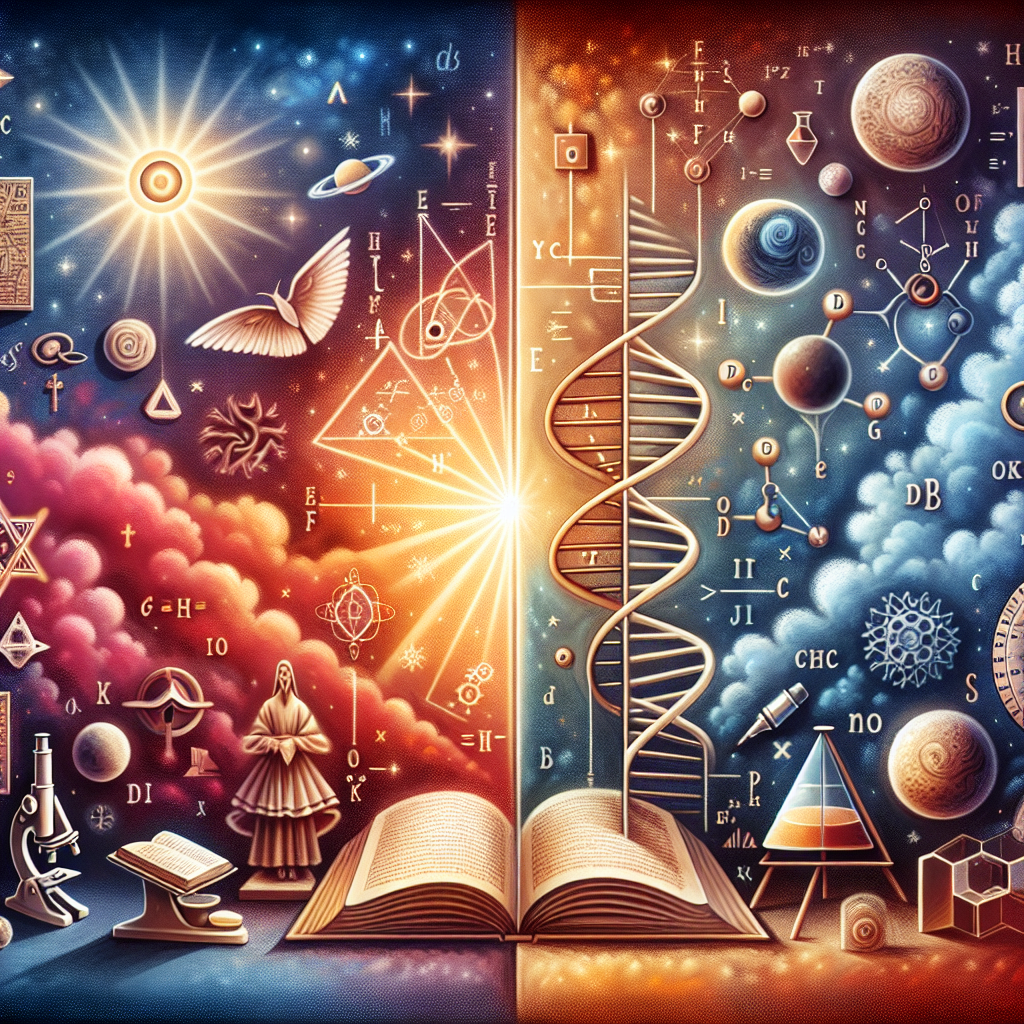The relationship between faith and science is often viewed as contentious, with each domain holding a distinct worldview that sometimes seems irreconcilable. However, for many, these two realms can coexist harmoniously, offering complementary insights into the nature of existence. One rich area of exploration in this intersection is biblical cosmology—the understanding of the universe as presented in the Bible—when viewed through the lens of modern scientific discoveries. This article seeks to illuminate the beauty of this relationship, encouraging an open dialogue between spirituality and inquiry.
Understanding Biblical Cosmology
Biblical cosmology refers to the ancient Israelites’ understanding of the universe as depicted in the Bible. This cosmology is rooted in narratives such as Creation, the Flood, and prophetic visions, encapsulating the spiritual relationship between God, humanity, and the cosmos. Unlike modern scientific accounts, which are often empirical and quantifiable, biblical texts were written in a culturally rich, metaphorical language designed to convey moral and theological truths rather than scientific details.
For instance, the opening chapters of Genesis present a narrative of creation that emphasizes God’s sovereignty and the intentionality behind the cosmos. While the days of creation are not synchronized with the scientific understanding of geological and cosmic timeframes, they inspire believers to appreciate the world as a divinely orchestrated masterpiece, full of purpose and meaning.
The Dialogue Between Faith and Science
In recent decades, many theologians and scientists have sought common ground, highlighting that faith and inquiry do not have to be in opposition. The scientific method, which relies on observation, experimentation, and revision, parallels the spiritual journey of seeking understanding and truth. Both approaches encourage curiosity, prompting profound questions about existence, morality, and the universe’s nature.
For instance, the field of astrophysics explores the origins of the universe, challenging us to consider the implications of events such as the Big Bang. Some theologians suggest that this scientific narrative does not clash with the biblical account of creation but rather enriches it. The notion of a universe expanding from a singularity can be seen as echoing the idea of God calling the cosmos into being, inviting believers to ponder the majesty of creation from both a spiritual and a scientific perspective.
Embracing Mystery and Wonder
Exploring the intersection between biblical cosmology and modern science invites us to embrace complexity and the mystery of existence. Science reveals the breathtaking intricacies of the universe, from subatomic particles to sprawling galaxies. Meanwhile, biblical narratives offer deep-rooted insights about human purpose, morality, and God’s presence in the world.
This convergence encourages a spirit of wonder. Rather than viewing faith and science as competing sources of knowledge, they can be understood as two pathways that lead to a greater appreciation of life’s mysteries. As we observe the night sky or delve into the depths of quantum physics, we might find ourselves echoing the psalmist’s awe: "When I consider your heavens, the work of your fingers, the moon and the stars, which you have set in place, what is mankind that you are mindful of them?" (Psalm 8:3-4, NIV).
Integrating Faith in a Technological World
In our rapidly advancing technological age, many wrestle with ethical dilemmas raised by scientific advancements. The convergence of faith and science offers a foundation for approaching these issues thoughtfully. By grounding our understanding of scientific inquiry in a framework of moral and ethical responsibility, we can address concerns ranging from biotechnology to environmental stewardship with a sense of purpose informed by faith.
Believers can advocate for the responsible use of technology, ensuring that discoveries benefit humanity rather than harm it. Engaging in this dialogue allows people of faith to participate meaningfully in conversations impacting society, bridging the gap between theological reflection and scientific inquiry.
Moving Forward Together
Ultimately, exploring the intersection of faith and inquiry—particularly through the lens of biblical cosmology and modern science—provides a fertile ground for dialogue, discovery, and growth. Rather than viewing these domains as inherently conflicting, we can appreciate them as complementary perspectives that enrich our understanding of the universe and our place within it.
As we venture into this space of exploration, we find encouragement in the idea that both faith and science beckon us towards truth, understanding, and interconnection. Engaging with both realms broadens our horizons and invites us into deeper relationships with each other, the universe, and the divine. By welcoming the spirit of inquiry within our spiritual journeys, we can celebrate the richness of knowledge, embodying the truth that, ultimately, all wisdom and understanding come from a loving creator who desires us to seek and discover.
Let us embark on this journey together—where faith and inquiry nurture one another, illuminating the path toward greater insights about the cosmos and our role within it.
Explore and dig up answers yourself with our BGodInspired Bible Tools! Be careful – each interaction is like a new treasure hunt… you can get lost for hours 🙂


